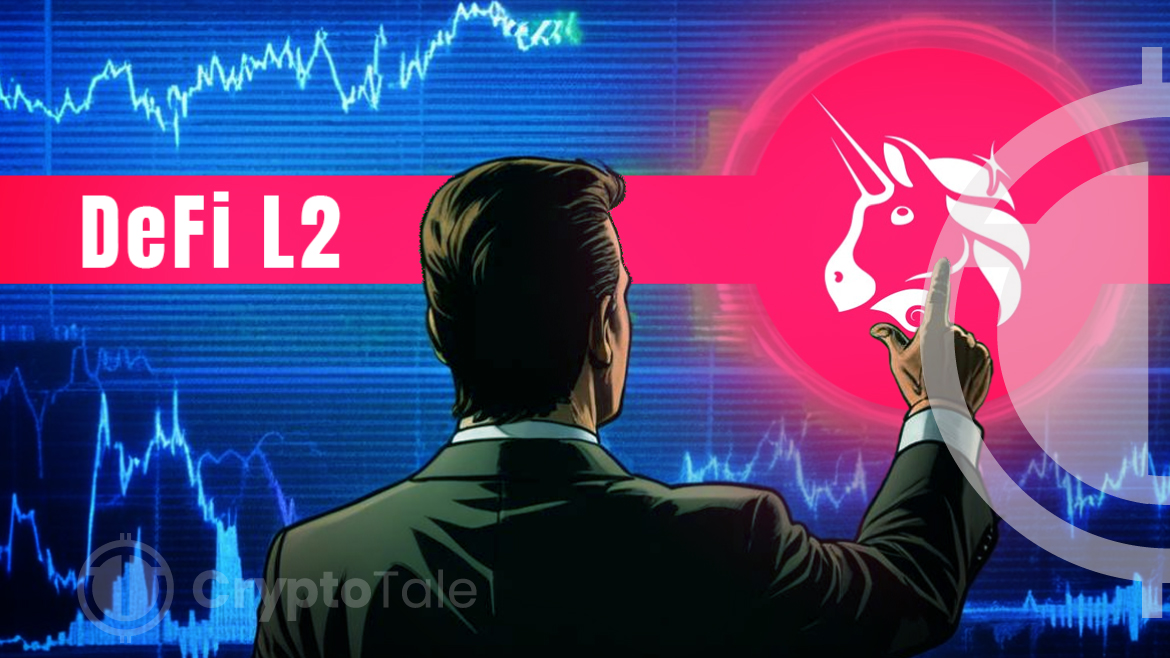- Uniswap Labs’ Unichain launch shifts fees from Ethereum to benefit UNI token holders.
- Unichain enables Uniswap Labs to capture Maximum Extractable Value, boosting earnings.
- Liquidity providers on Unichain will gain from staking and transaction settlement roles.
Uniswap Labs has launched Unichain, a new layer 2 blockchain, poised to transform the decentralized finance (DeFi) landscape. By moving transactions off the Ethereum mainnet, Unichain allows Uniswap Labs and its token holders to reap significant financial rewards. With an estimated annual fee savings of around $500 million, this change could reshape the financial ecosystem for users and creators alike.
Financial Benefits for Uniswap
The introduction of Unichain shifts a staggering $368 million in fees from Ethereum validators directly to Uniswap Labs. This transition enhances the financial position of Uniswap and its stakeholders. They now retain more value from transactions conducted on their platform. Michael Nadeau, founder of DeFi Report, highlighted that the layer 2 solution captures all Maximum Extractable Value (MEV) for Uniswap.
. @Uniswap generated nearly $1.3b of trading and settlement fees across 5 primary chains over the last year.
— Michael Nadeau (@JustDeauIt) October 13, 2024
The protocol and token holders captured $0 of that value.
[100% went to Liquidity Providers, Ethereum Validators, MEV bots, and the L2 sequencers]
But with the launch… pic.twitter.com/vgpn7xjFky
This is a benefit not previously enjoyed on the Ethereum network. By owning all validators on Unichain, Uniswap Labs eliminates competition for MEV. Historically, this value has benefited Ethereum validators.
MEV (Maximal Extractable Value) has become a major topic in decentralized finance (DeFi). It refers to the potential profits that can be earned by optimizing the order and execution of transactions within a blockchain network. It is estimated that MEV could account for about 10% of total fees paid on Uniswap. This could amount to an additional $100 million annually. Uniswap Labs might consider sharing a portion of this with its token holders. This decision would further enhance the appeal of their ecosystem.
Uniswap Labs Urges SEC to Reconsider DeFi Rulemaking Post-Supreme Court RulingEnhancements for Liquidity Providers
Liquidity providers on Uniswap stand to gain significantly from the launch of Unichain. By engaging in staking, participants can contribute to transaction settlement while also capturing MEV (Maximal Extractable Value), maximizing their potential rewards. Active involvement increases their potential earnings. It also solidifies their role in the Uniswap ecosystem. By providing liquidity in this new environment, participants could enjoy a more streamlined experience. They may see improved returns compared to the existing Ethereum framework.
As Unichain prepares for public testing, developers emphasize its ability to enhance cross-chain communication. Users will soon have the capability to swap tokens across different blockchains seamlessly. This feature addresses the fragmentation in liquidity that has long plagued the DeFi sector. It ensures a more cohesive user experience.
Future of Unichain: Speed and Security
Unichain is built on Optimism’s Superchain which forms the company’s key infrastructure. It targets at enhancing the flow of transactions and decreasing the cost. The blockchain has block times which take only between 200 to 250 milliseconds. This is much faster to several other approaches widely in use at the moment. This speeds up the processing and benefits the users. It also helps make the trading environment less cumbersome.
In addition, Unichain has a strong validation network on this site. This design provides a strong security and reliability of the system. As testing of the platform progresses, it is imperative that security continues to be of topmost priority. Once live, Unichain aims to create a unified DeFi experience. It fosters greater interaction among various blockchain protocols. This development could potentially redefine the future of decentralized finance.






